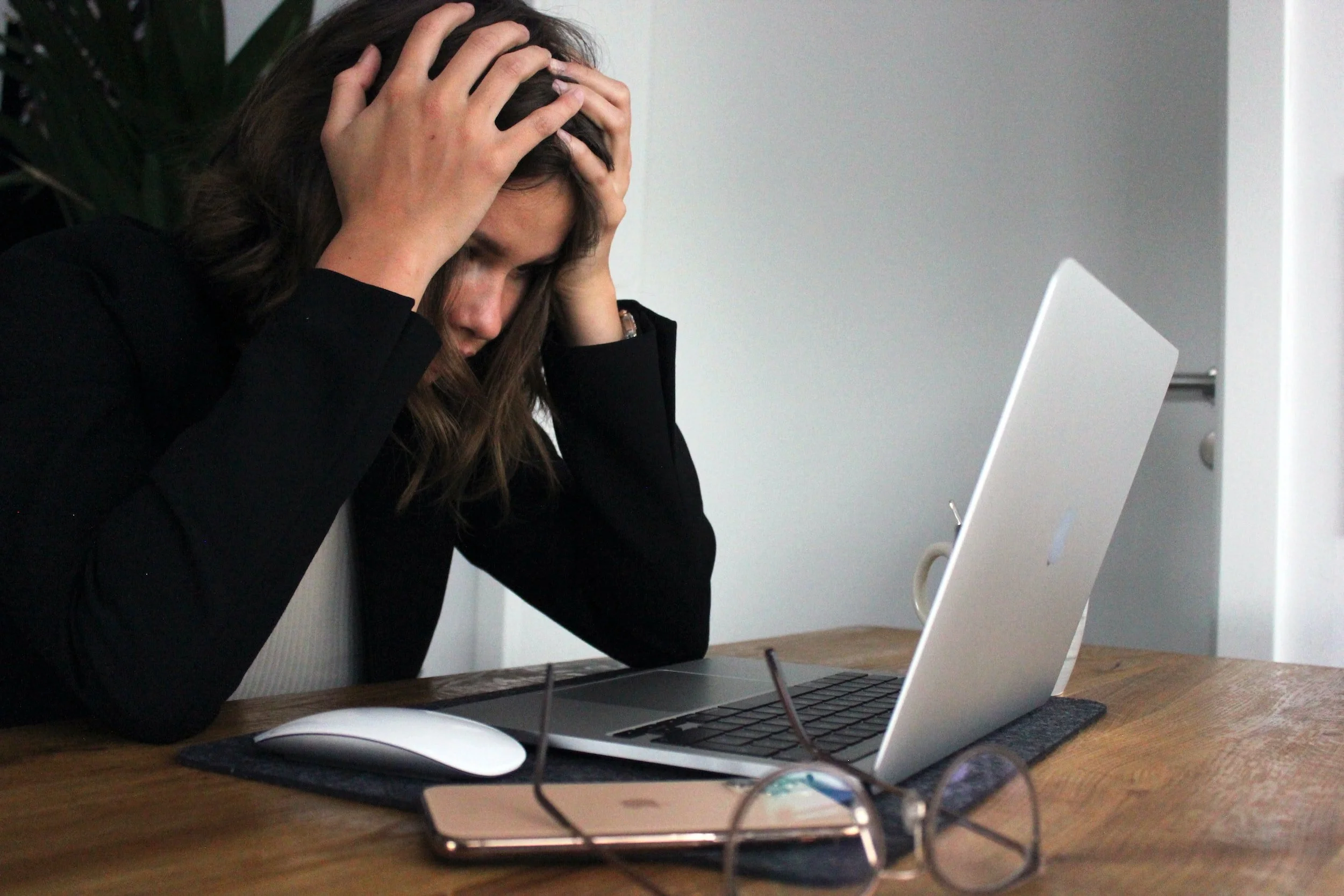HOT TAKES. ONE PLACE.
There's a LOT to know about insurance. So, whether you've got a specific question or just want the 411 on what we do, click around on the articles below.
Anxiety Disorders and Panic Attacks
It’s common to feel worried or scared sometimes. But feelings of intense fear or worry can build to unhealthy levels, making it challenging to complete daily tasks. Overwhelming emotions of distress and worry can also be indicative of anxiety disorders or trigger panic attacks. Although both may begin with similar feelings of distress, key differences exist.
SAMHSA Report Reveals Americans’ Mental Health and Substance Use Struggles
The U.S. Department of Health and Human Services’ (HHS) Substance Abuse and Mental Health Services Administration (SAMHSA) released the results of its annual National Survey on Drug Use and Health. The survey asks Americans about their experiences with mental health conditions, substance use and pursuit of treatment.
5 Mental Health Employee Benefits Trends for 2023
Between the COVID-19 pandemic, inflation and evolving job duties, more employees are experiencing mental health challenges. In fact, a 2022 Lyra survey revealed that 84% of employees experienced at least one mental health challenge over the past year. They’re feeling anxious, burnt out, stressed and depressed.
Preventing Burnout During the 2022 Holiday Season
According to Microsoft research, nearly half of employees have reported that they are burnt out at work. The World Health Organization defines burnout as a syndrome resulting from workplace stress that has not been adequately managed. Everyday life is hectic enough without the added stress of the holidays.
Surgeon General Releases New Framework For Mental Health And Well-being In The Workplace
The U.S. surgeon general released a new framework outlining how the workplace can promote the health and well-being of employees. It’s vital that employers take time to invest in the mental health and well-being of their employees.
Understanding the Effects of Deep Sleep and Tips for Improving It
Sleep is crucial for your overall health and well-being. There are generally considered to be four sleep stages—awake, light, deep and REM sleep. Deep sleep is the key repair and restorative stage of sleep, and it’s necessary to feel your best each day.
The Centers for Disease Control and Prevention Issues New Opioid Prescription Guidance
The Centers for Disease Control and Prevention (CDC) has issued new guidelines to clinicians for when to prescribe opioids for pain. The CDC officials have stated that doctors, insurers, pharmacies and regulators have misapplied previous guidance.
Combating Imposter Syndrome
Imposter syndrome affects millions of workers. From time to time, you may question your abilities and qualifications, but it may become a problem when this feeling escalates. Imposter syndrome is when you don’t think you belong or deserve your job. It can present in various ways, such as having insecurities about abilities, second-guessing decisions and being afraid of failure.
Managing Work-life Balance During Return to School
According to a recent AARP and S&P Global study, 60% of women who juggle work and caregiving are providing more care now than pre-pandemic. But for anyone with caregiving responsibilities, balancing them with work can be a real challenge with no easy solutions. Work-life balance refers to a person equally prioritizing career demands with personal obligations.
How Employers Can Address Substance Misuse
The National Safety Council (NSC) found that 1 in 12 workers is dealing with an untreated “substance use disorder” (SUD). Even if employers don’t see it, which is more likely with remote and hybrid work arrangements, substance use, misuse and addiction likely remain prevalent among their workforce.
Understanding FMLA Leave for Mental Health Conditions
Mental health is a growing concern in the workplace. Over the past few years, many employees have experienced mental health issues, such as burnout, depression, anxiety and substance abuse. Employers have responded by expanding mental health benefits, including adding mental health programs, increasing schedule flexibility, offering telemedicine options for mental health and providing more mental health education.
Social Well-being
Maintaining a healthy level of social well-being benefits your overall health and relationships around you. Social well-being is the sharing, developing and sustaining meaningful connections with others. Benefits of social well-being can include being comfortable where you are in social situations, increased self-esteem, the ability to create healthy boundaries and helping build emotional resilience.
Health Panel Calls for Routine Anxiety Screening for Adults
The U.S. Preventive Services Task Force (Task Force) recommends that adults under the age of 65 get regularly screened for anxiety. The draft recommendation applies to adults 19 and older who don’t have a diagnosed mental health disorder. It’s meant to help primary care clinicians identify early signs of anxiety, which can go undetected for years.
KFF Survey Explores America’s Mental Health Crisis
Mental health is a serious concern for the majority of American adults, according to a new survey conducted by the Kaiser Family Foundation (KFF) and CNN. The findings revealed that an alarming 90% of adults feel the nation is experiencing a mental health crisis. Furthermore, 1 in 5 adults rated their own mental health as “only fair” or “poor.”
How to Spot Depression
It’s normal to have fluctuations in sadness from time to time, but what’s concerning is when the sadness lingers for two or more weeks. If this is the case, someone may be experiencing depression. Depression can be defined as persistent, unshakable dark feelings.
Prevent Burnout Through Meaningful Connections
Burnout—known as a state of physical, emotional or mental exhaustion—has always been an issue within the workforce, but it has become more prevalent as a result of the COVID-19 pandemic. Now more than ever, people are increasingly anxious and stressed. According to Mental Health America, the number of people who sought help for anxiety during 2020 increased 93% from the previous year.
5 Tips for Supporting the Mental Health of Remote and Hybrid Employees
As more employees work remotely or adapt to a hybrid schedule, workers face a new set of stressful challenges. Managers can play a crucial role in helping employees manage their stress levels but must also be able to gauge the pulse of their team to effectively help them feel less tired and stressed due to their job.
The Connection Between Nature and Well-being
Whether it’s a stroll in the park or a bike ride through the woods, being outdoors can positively impact your well-being. There are numerous ways nature can boost your mood and overall health.
Prioritizing Mental Health Amid Inflation-related Anxiety
Financial stress can be a burden, but it can also negatively impact your mental health. During this period of increased inflation, it is especially important to understand the relationship between financial and mental wellness so you can apply strategies to help you improve both areas of your life.
Bringing the Outdoors Into Your Work-from-Home Routine
Whether a stroll through the park or a day spent hiking, general exposure to green spaces is linked to numerous physical and mental benefits—including improved attention, lower stress and better mood. As such, spending time in nature can help remote employees be more focused, inspired and creative. You don’t have to go on a two-hour hike or even break a sweat. You can benefit just from being outside among trees and other green spaces for roughly five minutes a day.





















